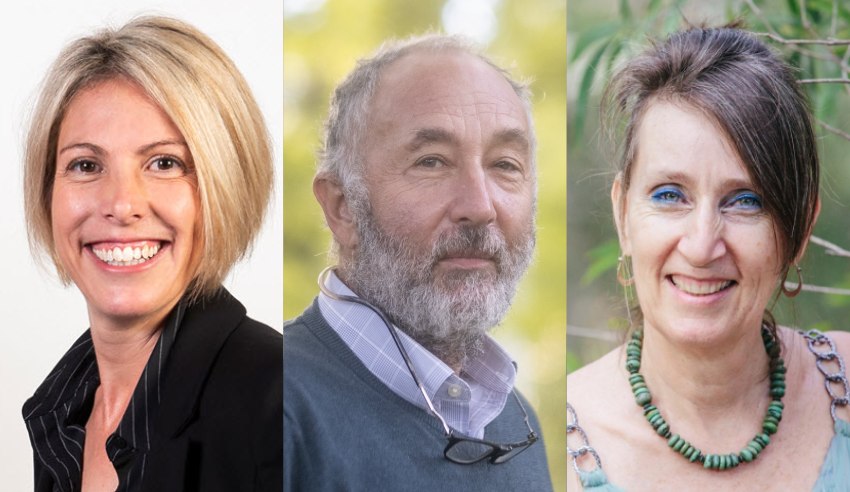Vicarious trauma in the legal profession is becoming worse with increased technological developments, according to one former magistrate, who offers his thoughts on how to combat it.

Amanda Mead, owner of Law Firm Solutions and holistic business and lifestyle coach to lawyers and barristers, hosted a panel discussion recently with ex-magistrate David Heilpern and GP and psychotherapist Dr Leila Davis on vicarious trauma and its detrimental effects.
“I think the big change for magistrates and lawyers who appear in court, the two biggest changes have been technology and the implications of the royal commission into child sexual abuse, because the technology has meant we get a lot more pictures,” he said.
“Reading a story can be really confronting, but nothing is as confronting as seeing things in real life or seeing pictures. Over the last decade, things like child pornography, child sexual abuse where there is video evidence of it and also the whole wave of children giving evidence in court as a recognition of past trauma has really significant implications for all those who work in the courts.”
Hearing children give evidence about sexual abuse and watching a number of child abuse videos and child pornography had a detrimental effect on the way Mr Heilpern was able to live his life. He added that he found it hard to sleep and would wake up with images in his head, as well as experienced decision fatigue – making decisions became hard and “physically hurt” him.
“I think vicarious trauma for those who work in these systems is real, and I’ve certainly experienced it to my detriment over a number of years. It started having a really deleterious effect on my mental health,” he said.
“In the judiciary, there is no history of people speaking out about this. I can claim to be the first judicial officer to speak about vicarious trauma, and it started a movement.”
Whilst Mr Heilpern said that, as a magistrate with no jury, the guilty or not guilty decisions are “one of the hardest you have to make” and “terribly difficult to live with”, Dr Davis said that it was important to learn how to mitigate vicarious trauma before it takes over your life in what she called a “perfect storm”.
“What goes with [the trauma] is an inability to enjoy life, and your sleep and mood become worse. It produces this perfect storm,” she said.
“When you’re experiencing this, you probably feel vulnerable and didn’t really want to share it with someone. The shame that keeps it hidden is the very thing that eats away at us.”
Dr Davis added that sharing your traumatic experiences, particularly in a group environment, can be extremely useful for healing. Sharing how you have been impacted by particular events, as well as the affirmation of having your emotional reaction validated, is a valuable technique to help deal with vicarious trauma.
“The most powerful way to mitigate vicarious trauma is to share it. To be seen and heard by another person who can hold and contain the emotion and allow that this has happened and there’s nothing wrong with you for feeling this way,” she said.
“Looking after your physical health is also really important when you’re experiencing that sort of thing. With all my clients, it’s now non-negotiable. You have to exercise every day and you have to meditate every day. Because those two things just give you a break.
“We’re all in these professions because we wanted to help other people, but the biggest thing that I needed to learn and teach my clients is that the first person we need to help is ourselves. We can’t do anything if we aren’t helping ourselves.”
Mr Heilpern completely stopped working on child pornography cases that he said helped astronomically and stopped “retraumatising” him and agreed that meditation has been instrumental in helping him. In fact, he is currently setting up his own small meditation group in Mullumbimby.
“Having a meditation practice and the ability to debrief all the things we’ve been talking about is so obvious, and yet there’s a barrier. I really respect that barrier of people struggling to take that first step to get helpt,” he said.
“I wish I had done it 10 years earlier than I did. I think the caring professions, whether they be legal or medical, a lot of them do have debriefing or supervision, but lawyers don’t. We don’t have that as a compulsory part of our practice. We must change that.
“The culture of the judiciary certainly is that we’re independent judicial officers, which basically translates to supposedly being completely objective, which basically translates into not being human beings. So that’s the barrier you’re dealing with and I think for a lot of those that work in law, you are your job, 24 hours a day, seven days a week.
“It’s part of your identity. And that makes it a much more dangerous territory.”

Lauren is the commercial content writer within Momentum Media’s professional services suite, including Lawyers Weekly, Accountants Daily and HR Leader, focusing primarily on commercial and client content, features and ebooks. Prior to joining Lawyers Weekly, she worked as a trade journalist for media and travel industry publications. Born in England, Lauren enjoys trying new bars and restaurants, attending music festivals and travelling.